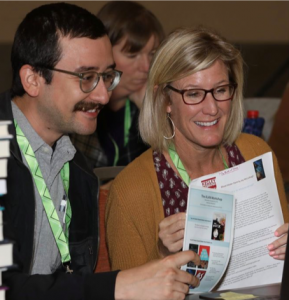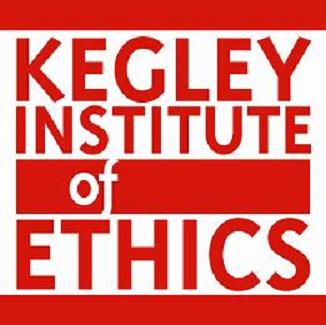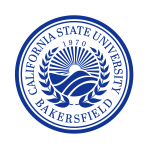Student and Teacher Agency through Young Adult Literature
Submitted by KIE 2019-2020 Faculty Fellow and Assistant Professor of Teacher Education, Dr. Alice Hays. See Dr. Hays’ bio here.
 Kern County’s Literacy rate is among the lowest in the country and, according to kidsdata.org1, recent California Assessment of Student Performance and Progress (CAASP) scores show that only 39% of 8th graders are meeting or exceeding grade level standards in English Language Arts (ELA), with 52% meeting or exceeding standards by 11th grade. While this improvement is significant, and something to be celebrated, the sobering reality is that these numbers are not nearly what we would like to see as educators.
Kern County’s Literacy rate is among the lowest in the country and, according to kidsdata.org1, recent California Assessment of Student Performance and Progress (CAASP) scores show that only 39% of 8th graders are meeting or exceeding grade level standards in English Language Arts (ELA), with 52% meeting or exceeding standards by 11th grade. While this improvement is significant, and something to be celebrated, the sobering reality is that these numbers are not nearly what we would like to see as educators.
Add to this, the ethical need to develop students into active citizens of our democratic nation, and we can see the urgency to develop a literate, civic minded student body.
In order to both combat these low rates of literacy, and develop this civic capacity, I had the privilege of co-constructing a curriculum focused on utilizing young adult literature as inspiration for a civic oriented action plan with an energized, and amazing team of educators at Lincoln Junior High School in Taft, CA.
With the teachers’ guidance, students chose issues they felt were important within their community. Some of the issues that students chose included homelessness, drug abuse, immigration, and environmental issues. It is important to note that there were a wide variety of topics that the students picked, and these 7th graders think about concepts that reach far beyond the immediate scope of their personal lives.
With grant funding from the Assembly for Literature for Adolescents of NCTE (ALAN), we were able to provide young adult novels that focused on, or touched upon the issues the students wanted to read about. Some of the novels included Crenshaw by Katherine Applegate, The Circuit by Francisco Jimenez, the graphic novel, Hey Kiddo by Jarrett Krosoczka, and Hoot by Carl Hiaasen, among others.
Over the course of 6-8 weeks, the students read the novels, had group discussions, conducted and presented research about a selected issue, contacted community stakeholders who dealt with the issue in some way, and ultimately developed and carried out action that attempted to tackle the issue.
The students were excited and engaged about the possibility of taking action to address an issue they were passionate about. Some of the projects include collection boxes for school supplies to combat poverty, meetings with the principal to discuss informative assemblies around human trafficking, and creating Instagram accounts to showcase climate issues. For some of the larger issues, many of the student groups focused on raising awareness and advocating for change as their primary form of action. The climate change group has tagged their Instagram page with this descriptor, “We are a group that brings awareness to Ecological Issues”. Their last post to date was made on July 10, 2019…a solid two months after their final project was due.
I believe it is every educator’s dream to have students demonstrate excitement and personal investment in the assignments we give, and, at the same time, to provide students with ownership and voice. In this project, we have begun the process of teaching these students that books can matter and be relevant to them, and we have given them tools to begin effecting positive change within their own community.
As a teacher educator, I am also thrilled to be able to bring new experiences to the teachers involved. Through the support of the Kegley Institute of Ethics, one of our early career educators (Mr. Muñoz) was able to attend the Assembly for Literature for Adolescents of the National Council of Teachers of English (ALAN) conference this past November. While Mr. Muñoz has always been enthusiastic about the work we have done in his class together, it wasn’t until this event that he fully realized the myriad ways that one could approach teaching English.
This conference gave this early career educator exposure to authors and educators from around the country. Following this conference, Mr. Muñoz made a comment that simultaneously thrilled me and depressed me. He remarked that he felt as if Elizabeth Acevedo’s keynote speech gave him permission to be who he was as a teacher. 77% of teachers in America are white females2, although the majority of our students, particularly here in Kern County, are non-white.3 Here was a teacher who has similar experiences as his students – he had felt like he was hiding a part of himself to fit within a construct of teacher identity that isn’t necessarily helpful to many of our students.
There has been a great deal of research demonstrating the importance of relationships between teachers and students to inspire academic learning (see here, here and here, for example) but it is difficult to create relationships without being authentic to ones. The realization that this Hispanic/LatinX educator came to in terms of being himself will benefit his students in critical ways. His ability to connect with them, or “meet them where they are”, while also exposing them to rigorous academic standards and expectations has a significant likelihood of increasing engagement and achievement in his students.
Hopefully, the co-construction of this curriculum and the ability to bring Mr. Muñoz to this conference through the support of the Kegley Institute of Ethics and the ALAN foundation, will continue to develop both student and teacher voice and agency in the future. I am excited to continue this journey with more educators in Kern County.
Resources:





